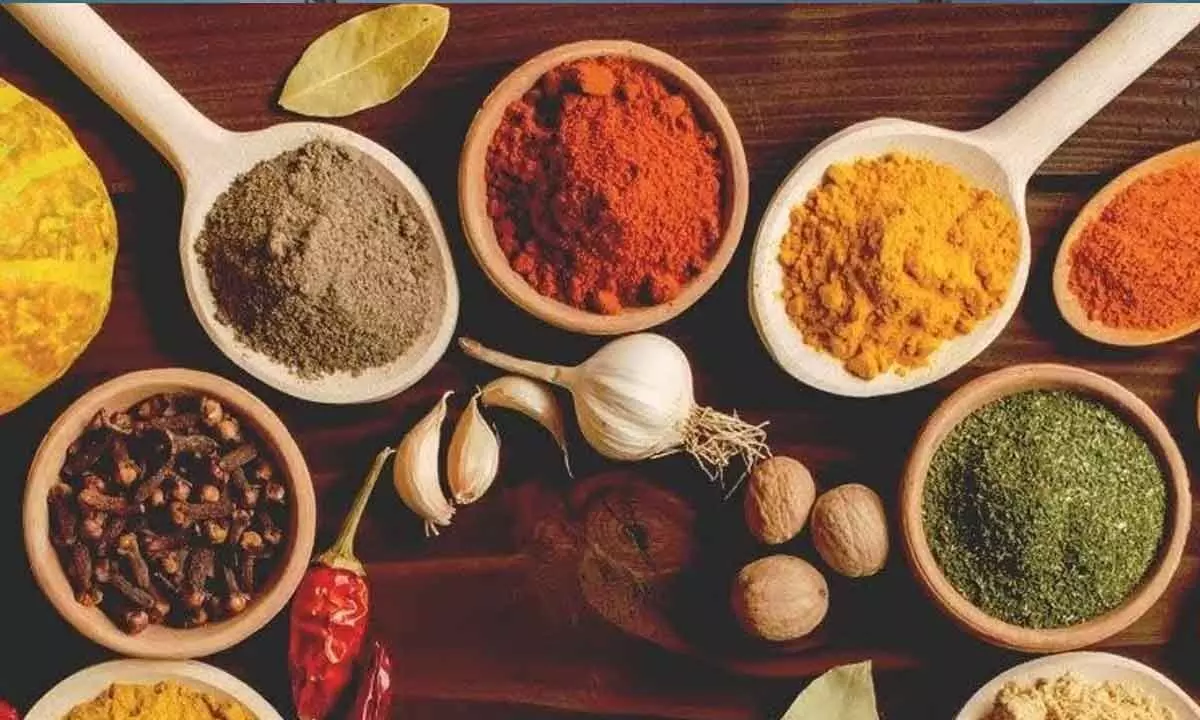Govt adopts stringent norms for pesticide residues limit in food
The clarification comes amid a ban imposed by the Hong Kong food regulator on certain spice mix of 2 leading Indian brands MDH and Everest
image for illustrative purpose

New Delhi: The government on Sunday asserted that India has one of the most stringent norms for pesticides residues in food items and rejected reports suggesting that food regulator FSSAI allows high level of residues in spices and herbs.
The clarification comes amid a ban imposed by the Hong Kong food regulator on certain spice mix of two leading Indian brands MDH and Everest on alleged presence of pesticide Ethylene Oxide in their samples.
The Singapore food regulator too ordered a recall of one spice product of the Everest brand. FSSAI is currently collecting samples of branded spices, including that of MDH and Everest, sold in the domestic markets to ensure they comply with its quality norms. It does not regulate the quality of exported spices. In a statement, the Union Health Ministry clarified that maximum residue limits are different for various food products based on risk assessment. "Some media reports are claiming that the Food Safety and Standards Authority of India (FSSAI) allow 10 times more pesticide residue in herbs and spices. Such reports are false and malicious," the ministry said. India has one of the most stringent standards of Maximum Residue Limits (MRLs) in the world, it asserted.
"MRLs of pesticides are fixed differently for different food commodities based on their risk assessments," the ministry explained. Pesticides are regulated by the Ministry of Agriculture through the Central Insecticide Board and Registration Committee (CIB & RC) constituted under the Insecticide Act, 1968. The CIB & RC regulate the manufacturing, import, transport, storage of pesticides and accordingly the pesticides are registered/ banned/restricted by CIB & RC. Explaining the process of fixing pesticides residue limits, the health ministry said that the FSSAI's scientific panel on pesticides residues examines the data received through CIB & RC and recommends the MRLs after performing risk assessment.
The dietary consumption of the Indian population and health concerns in respect of all age groups are taken into account. "Total pesticides registered by CIB & RC in India are more than 295, out of which 139 pesticides are registered for use in spices," the ministry said. Codex has adopted a total 243 pesticides, out of which 75 pesticides are applicable for spices. The ministry further said that a pesticide is registered on many food commodities with different MRLs based on risk assessment data. For instance, the use of Monocrotophos is allowed on many crops with different MRLs such as rice at 0.03 mg/kg, citrus fruits at 0.2 mg/kg, coffee beans at 0.1 mg/kg and cardamom 0.5 mg/kg, Chilli at 0.2 mg/kg.

